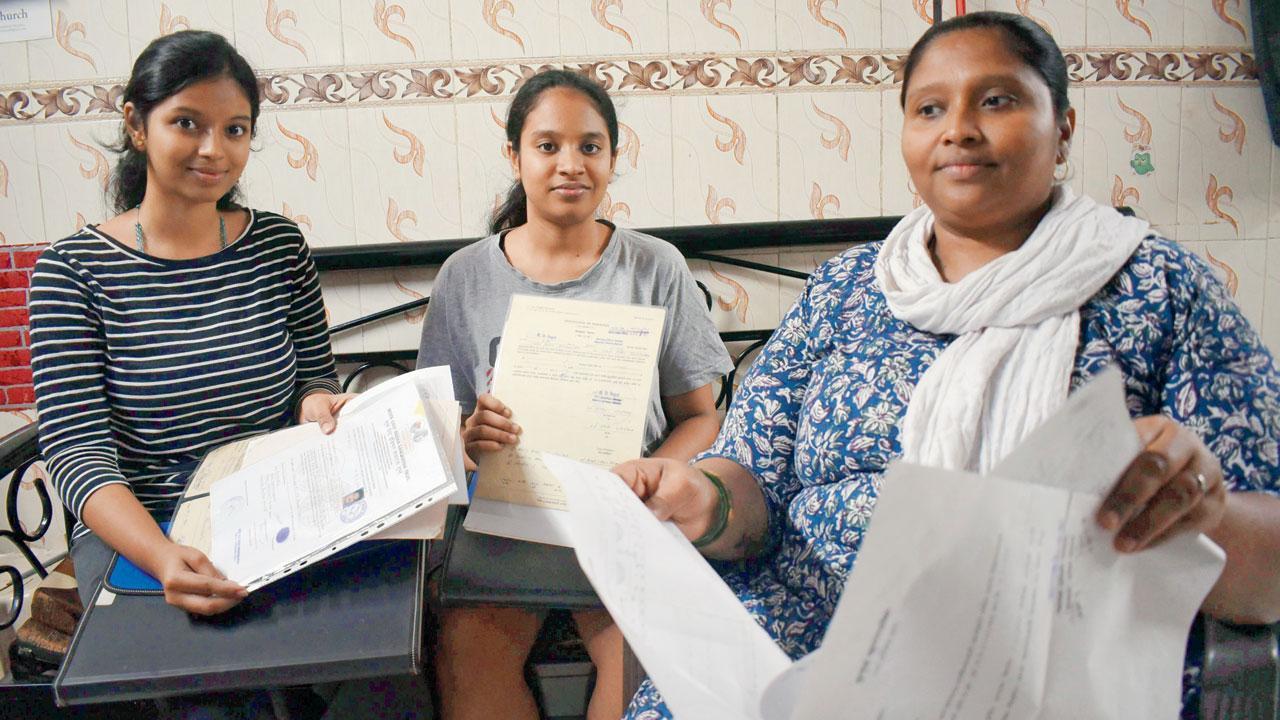
“It`s as if the government has laid out a feast before us, but then tied our hands, leaving us unable to partake in the meal,” said Stella Misquitta. The housewife and Mankhurd Gaon resident is articulating a sentiment expressed by many East Indians of late. Following the recent developments in reservations for Marathas and the government’s subsequent survey, the quarters of Mumbai`s native Christians have seen curiosity and a churning.
The Mobai Gaothan Panchayat (MGP), an umbrella organisation bringing together all of the city’s gaothans, is mobilising by establishing a committee to gain broader access to reservation benefits. This committee has begun encouraging community members to apply for Other Backward Caste (OBC) certification and is working diligently to raise awareness about the process.
In March 2006, the East Indian community was designated as OBCs, a classification intended to grant access to government jobs, seats in educational institutions, and fee concessions. This inclusion was influenced by the fact that many Hindu caste groups, such as the Kunbis, Kolis, Agris, and Bhandaris—to which the East Indians trace their origins—were already listed in this category. “It`s disheartening; very few individuals have actually benefited. For those who did, their certificates became practically useless due to the inability to verify caste validity on various technical grounds. The administration needs to acknowledge these challenges and find a solution,” remarked Alphi D`Souza, CEO of the MGP’s Mumbai Metropolitan Region (MMR).
Gleason Barretto and Walter Murzello
Further, the thought of enduring cumbersome documentation and application processes for the OBC status, only to find out that the benefits cannot be realised, has deterred many from applying. “During the Maratha survey, we received numerous inquiries about this issue. Consequently, a committee and help desk were established to not only guide community members but also encourage them to apply. We are currently working on answering FAQs, compiling a list of required documents for applications and verification, and appointing a community nodal authority to facilitate interactions with authorities,” D`Souza added.
Stella Misquitta has tirelessly sought to obtain OBC certificates for her daughters. Despite numerous visits to the Tahsildar Office in Andheri and efforts to fulfil caste validity requirements, their applications were rejected. “There is a requirement of East Indian ancestry in one’s ancestors` documents. We obtained a letter from our East Indian samaj and had it noted on the baptism certificate at the parish. However, they demanded proof of our sub-caste. After six months of running around, our applications were ultimately rejected last year,” Stella said.
To date, only about 400 have managed to obtain certificates, but many of them haven’t completed the caste validity procedure. Notably, many baptism certificates issued by parishes do not mention East Indian origins. Vicky Misquitta, the Vibhag Sarpanch of Marouli, Mankhurd under the Mobai Gaothan Panchayat, says, “During the Portuguese era, East Indian Christians were referred to as a nationality, while the British era documents termed them as ‘Indian Christians’. Some baptism certificates even mention Roman Catholics…” Alongside providing ancestral documents and property deeds, a non-creamy layer certificate assessing the family`s annual income is also needed.
The Mobai Gaothan Panchayat has begun mobilising to ensure that more community members can avail of the benefits that come with an OBC certificate
Misquitta plays a significant role in raising awareness and providing guidance to those applying. He spoke of his own family’s experiences. “I applied for the BMC`s General Nursing and Midwifery (GNM) course for my daughter. Those scoring below 50 percent were selected because they had OBC status. Despite my daughter achieving distinction in HSC, she missed out due to the lack of validity,” he said.
Community members also recognise that relying solely on the government or local bodies may result in unresolved problems. In light of this, they are all set to establish their own cabinet system, akin to the government—refurbishing the core MGP Managing Committee with a new name: the East Indian “cabEInet”. Under this system, selected representatives will oversee 27 departments, including civic affairs, social justice and education. The candidates to head these departments have already been picked, but the cabEInet’s official announcement and launch will take place during a community conclave scheduled on February 25.
“For 14 long years, we have seen little success as the authorities showed little concern. We have decided to adopt a self-sustaining approach to address the needs of our community—the indigenous people of Mumbai. While we continue to engage with relevant authorities, we will also explore alternative methods to address our issues,” stated Gleason Barretto, an MGP Global Ambassador and the cabEInet’s Commissioner of Planning and Strategy.
Alongside the OBC status, the Social Justice department, which will be steered by Vicky Misquitta, is also addressing other issues such as water, education, heritage and culture promotion, music, and sports. Anthropologist Walter Murzello will handle the Guardian of Heritage and Customs portfolio. Murzello hopes the portfolio will help to garner authorities’ attention. “Our community is dwindling in numbers, and authorities often overlook our issues, prioritising those of larger populations… Our culture, traditions, and heritage are distinct from other Christian communities. We will work towards highlighting this distinction and creating more awareness about it.”
#dawn #East #Indians #vying #OBC #benefits